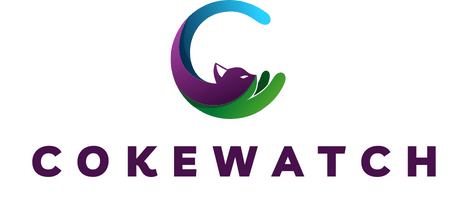How to Create a Mental Stimulation Routine for a Senior Dog with Canine Dementia?

As our beloved four-legged friends age, they may begin to exhibit changes in their behaviours and habits, just like their human counterparts. One of these changes could be Canine Cognitive Dysfunction (CCD), a condition similar to dementia in humans, which affects dogs, particularly those of senior age. The symptoms are often subtle and may include disorientation, changes in interaction, sleep disorders, house soiling, and changes in activity levels. However, it is possible to help your senior pet maintain a healthy mind as they age, and this can be achieved through a mental stimulation routine.
This article will delve into the intricacies of CCD, the importance of mental stimulation for senior dogs, and how you can create a routine to help keep your dog’s brain health in check. The routine will include exercise and interactive toys, which can be beneficial for your dog’s cognitive function.
Topic to read : What’s the Best Method to Safely Trim the Fur Around a Dog’s Eyes?
Understanding Canine Cognitive Dysfunction
Canine Cognitive Dysfunction is a neurodegenerative disorder that affects the brains of older dogs, much like Alzheimer’s disease in people. As a pet owner, it’s crucial to understand the ins and outs of this condition, as it will better equip you to manage it and keep your dog comfortable during their senior years.
Typically, dogs with CCD will show signs of memory loss, confusion and disorientation. They may forget commands they once knew, get lost in familiar surroundings, have difficulty recognizing family members, or start having accidents indoors. In some cases, they might pace restlessly, bark inexplicably, or exhibit changes in their sleep patterns.
Topic to read : What Are the Best Low-Stress Grooming Techniques for a Shy Bichon Frise?
It’s important to note that these changes can be gradual and might only become noticeable over time. While there’s no cure for CCD, a combination of medication, diet changes, and mental stimulation can help manage the symptoms, slow the progression of the disease, and improve your dog’s quality of life.
Importance of Mental Stimulation for Senior Dogs
Just as physical exercise is vital to keep your dog’s body healthy, mental stimulation is equally crucial to maintain their cognitive health. It keeps their mind sharp, active, and can delay the onset of cognitive dysfunction in senior dogs.
Mental stimulation involves engaging your dog in activities that challenge their brain, encourage problem-solving, and promote learning. It can come in the form of puzzle toys, training exercises, or interactive games. Furthermore, these activities not only boost cognitive function but also strengthen the bond between you and your pet.
Mental stimulation for dogs with CCD becomes even more pertinent. It can help reduce anxiety and restlessness, mitigate some behavioural changes, and improve their overall wellbeing.
Establishing a Mental Stimulation Routine
Creating a mental stimulation routine for your dog doesn’t have to be a daunting task. It can be as simple as incorporating a few practical changes in their daily routine. The goal is to engage their mind, encourage them to think, and keep them busy in a healthy and constructive way.
You can start by introducing puzzle toys, which require your dog to solve a problem to get a reward, usually in the form of a treat. These toys provide a mental challenge and can keep your dog engaged for extended periods. Interactive toys that incorporate movement and noise can also stimulate your dog’s senses and engage their mind.
Next, incorporate training exercises in your routine. Even in their old age, dogs can learn new tricks. Not only does this provide mental stimulation, but it also boosts their confidence and provides a sense of achievement. Simple tricks like ‘touch’, ‘spin’, or ‘find the treat’ can be very effective.
Remember, consistency and routine are key. Try to establish a routine that includes mental stimulation activities at the same time every day. This will give your dog something to look forward to and can help establish a sense of normalcy, which can be comforting for dogs with CCD.
Physical Exercise as Cognitive Stimulation
Physical exercise has been shown to have numerous benefits for dogs, including boosting brain function, reducing anxiety, improving sleep, and maintaining overall health. When your dog exercises, their brain produces a chemical called Brain-Derived Neurotrophic Factor (BDNF), which supports the health and growth of neurons in the brain. This is why physical exercise is so beneficial for dogs with CCD.
You can include activities like walking, swimming, or fetch in your routine. However, keep in mind the physical capabilities of your senior dog. Their exercise routine should be gentle and not overly strenuous. Regular, moderate exercise is far more beneficial than infrequent, intense exercise.
In addition to physical exercise, consider incorporating activities that engage your dog’s senses, such as scent games. These can stimulate their brain and keep them mentally active.
Remember, caring for a senior dog with CCD can be challenging, but it’s also incredibly rewarding. With patience, love, and the right mental and physical stimulation routine, you can make a significant difference in your dog’s quality of life.
Feeding Habits and Nutritional Supplements for Dogs with Canine Dementia
In addition to mental and physical stimulation, the feeding habits and nutritional intake of your senior dog can play a crucial role in handling cognitive decline. Providing your dog with a balanced diet enriched with antioxidants, omega-3 fatty acids, and B-vitamins can help maintain their cognitive health.
Dietary antioxidants, found in brightly colored vegetables and fruits, can protect the brain from oxidative damage, slowing down the progression of canine cognitive dysfunction. Omega-3 fatty acids, especially DHA, are known to enhance cognitive functions. They are abundant in fish oils. B-vitamins are essential for nerve health and can help alleviate symptoms of dementia in older dogs.
Nutritional supplements also play a significant role in managing canine dementia. One such supplement is Senilife, clinically proven to help with symptoms of cognitive decline in dogs. It contains a unique blend of antioxidants that work together to improve the behavioural changes associated with ageing.
Another supplement is Aktivait, a nutritional supplement that helps to reduce age-related physical and mental decline by providing the necessary nutrients needed for optimal brain and nerve function. Aktivait contains a complex formula of antioxidants, co-factors, and bioflavonoids that help to reduce brain damage caused by free radicals and supports brain function.
Remember to consult with a veterinarian before making any significant changes to your dog’s diet or introducing supplements. Every dog’s nutritional needs are unique, and a professional can provide guidance based on your dog’s age, size, breed, and health condition.
Adaptation of Home Environment
As your dog ages and cognitive decline sets in, it might be necessary to adapt your home environment to meet their changing needs and ensure their comfort. Older dogs with cognitive dysfunction may experience increased anxiety and disorientation, so your home should be a safe and familiar place for them.
Start by keeping their bed, food, and water bowls in the same location, as this consistency can help reduce confusion. If your dog experiences mobility issues, consider using ramps or stairs to help them navigate around the house. Create a quiet, comfortable space where your dog can retreat when they feel stressed or anxious.
Lighting is also important. Dogs with CCD can experience changes in their sleep-wake cycles, often becoming more active at night and sleeping during the day. Keep your home well-lit, especially during the evening, to help reduce anxiety and disorientation.
Remember, your dog’s sense of smell is far more potent than humans. Maintaining a consistent scent in your home can also provide comfort and reduce anxiety for dogs with dementia.
Conclusion
Caring for a senior dog with Canine Cognitive Dysfunction can be both a challenging and rewarding experience. Though there is no definitive cure for this condition, early detection and intervention can significantly improve the quality of life for your dog. By creating a mental stimulation routine, providing a balanced diet with the right nutritional supplements, adapting your home environment, and maintaining a regular exercise routine, you can help manage the symptoms and slow down the progression of the disease.
Remember, your love, patience, and commitment are the most important factors in providing your senior dog with a comfortable and fulfilling life. No matter the age or health condition, every dog deserves to live their golden years surrounded by affection and care.
